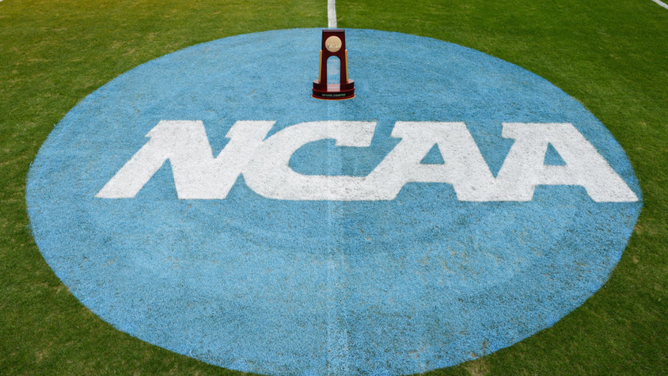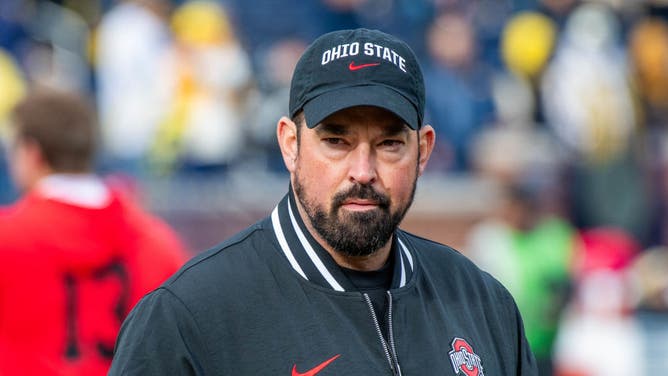NCAA Finally Approves In-Helmet Communication
The NCAA is finally embracing modern technology — approving a rule on Friday that will allow in-helmet communication devices for FBS games.
The NFL has been using them for years. At the pro level, quarterbacks have speakers inside their helmets, which allow them to easily hear the play call from the coach on the sidelines — no signals needed. But up to this point, the NCAA has been hesitant to adopt the technology because not every school could afford it and not every stadium had the infrastructure to support it.

(Photo by C. Morgan Engel/NCAA Photos via Getty Images)
But technology has improved, diversified and become more affordable.
So, beginning this fall, one player per team will be allowed to have a device within his helmet that allows for direct communication with coaches. This rule change will not only make play calling easier and eliminate the need for sideline signals (hello, Michigan scandal), but it will also speed up the game by minimizing the time necessary for calls to make their way to the huddle.
RELATED: Nick Saban Calls For In-Helmet Communication Amid Michigan Sign-Stealing Scandal
There are regulations, though. Use of the communication device is prohibited both within the final 15 seconds of the play clock and once the ball has been snapped.

(Ohio State Buckeyes head coach Ryan Day. Photo by Aaron J. Thornton/Getty Images)
Ohio State Buckeyes head coach Ryan Day said he has already begun to implement this technology at practices so that players can get used to it before the season starts in August.
"It's been good to work through that," Day said. "The easy thing is, when you're in the huddle, you just call the play and the quarterback calls the play and that's simple. But there are other ways to build in different hybrids between signals and calling it into the quarterback. There's verbal and then there's the physical signal. ... It's something new in college, each day we're learning a little bit more about it."
The NCAA panel on Friday also approved automatic timeouts with two minutes left in the second and fourth quarters — just like the NFL's two-minute warning. Teams will also now have the ability to watch in-game video on tablets on the sidelines.